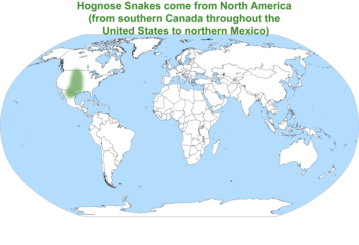Western Hognose Snakes
Reptilarium Animals
Western Hognose Snakes
Conservation status (Least Concern)
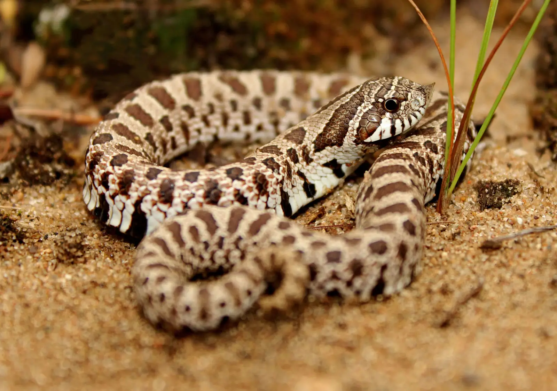

Western hognose snakes are small nonvenomous reptiles native to North America. Their colour and pattern is highly variable between subspecies, although most specimens appear much like rattlesnakes to the untrained eye. Western hognose snakes are usually greyish brown or light olive green in colour with darker dorsal spots. Males are considerably smaller than females. These snakes get their common name, "hognose", from the modified rostral (nose) scale that is formed in an upturned manner, providing a very "hog-like" look. Additionally, this adaptation makes these snakes adept burrowers. Western hognose snakes are not nonvenomous but possess potentially irritating saliva that may cause slight swelling and itching. The extremely rare bite from this rear-fanged snake is not regarded as dangerous to humans.
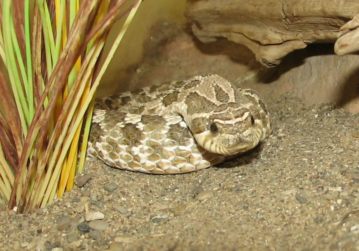
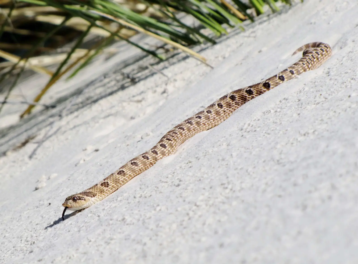
The western hognose snake (Heterodon nasicus ) is a species of snake in the family Colubridae. The species is endemic to North America. They occur from southern Canada throughout the United States to northern Mexico. They live in areas with sandy or gravelly soils, including prairies, river floodplains, wide valleys, scrub and grasslands, semi-deserts, and some semi-agricultural areas.
Western hognose snakes are solitary and primarily diurnal creatures. They spend their day searching for food or resting burrowed in the soil or in burrows created by other small mammals. These snakes brumate each year underground during cold winter months. They are typically docile snakes (though known to be highly defensive in some individuals). If threatened (or perceiving a threat), they may flatten their neck (much like a cobra), hiss, and make 'mock' or 'bluff' strikes if harassed; these strikes are made with the snakes' mouth closed. Even when further harassed, Western hognose snakes virtually never bite as a self-defence mechanism, but will instead usually resort to playing dead. Although it is more common that they will flatten their head, some individuals may puff up, filling the throat with air. This is more common with adolescent males.
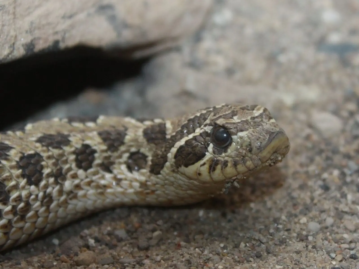
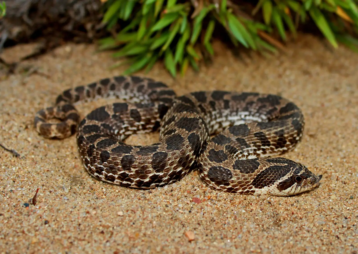
Western hognose snakes are carnivores. They feed predominately on amphibians, such as large and medium-sized tree frogs, as well as small or medium-sized toads and small lizards. These snakes may also prey on birds and small rodents.

